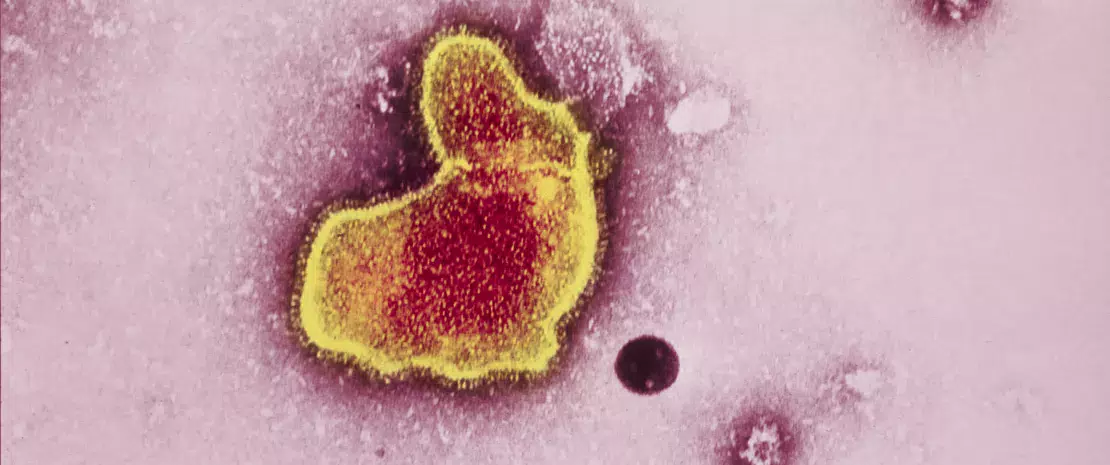What are the links between respiratory syncytial virus and gut microbiota?
When respiratory syncytial virus infects the lungs, the severity of the disease is correlated to specific bacterial profiles in the gut microbiota. This provides further evidence of the existence of an intestine-lung axis.
Lay public section
Find here your dedicated section
Sources
This article is based on scientific information

About this article
Most people contract a respiratory syncytial virus (RSV) infection before the age of one. While symptoms are limited to a mild upper respiratory tract infection in most infants, 0.5%–2% of them develop a severe infection of the lower respiratory tract, such as bronchiolitis or pneumonia, requiring hospitalization. There is currently no vaccine or other preventive treatment for RSV.
Phylogenetic clusters
With the links between the intestinal microbiota and respiratory health becoming increasingly clear, a research team compared the microbiota of 37 healthy infants to that of 58 hospitalized infants with confirmed moderate or severe RSV infection. A fecal analysis using 16S RNA sequencing showed no significant differences in microbial diversity (alpha) among the three groups. However, the analysis did reveal phylogenetic clusters able to discriminate not only RSV infants from the control subjects, but also the 53 moderate cases from the 5 severe cases. In particular, when compared to the control subjects, infants with severe RSV infection showed an increased abundance of the S24-7 bacterial family in their gut microbiota, whereas bacteria from Moraxellaceae, Tissierella and Soehngenia families were found to be reduced
S24-7: a severity marker?
Within the S24-7 family, (sidenote: Operational Taxonomic Unit groups of organisms usually not cultivated or not identified, classified on the basis of the similarity of the DNA sequencing of a given gene. Frequently used as an equivalent to the concept of species ) 191 was of particular interest to the researchers, since it was more abundant in the severe cases than in either the control subjects or moderate cases. OUT 191 may therefore be an indicator of the severity of the disease. The hypothetic mechanism of action could be a potential interaction with the immune system. S24-7 bacteria carry genes that code for enzymes that degrade IgA, an immunoglobulin involved in the protection of mucous membranes and the prevention of upper respiratory tract infections. However, available data do not reveal whether S24-7 bacteria are the cause or the result of RSV infection, especially since IgA degradation or a modification of immune responses may be caused by other metabolites in the microbiota that are not associated with S24-7 bacteria. In any case, this study lays the groundwork for identifying microbial clusters associated with RSV infection and its severity. It may help identify infants at risk of developing severe RSV infection and lead to the development of immunoprotective microbial mixes.


